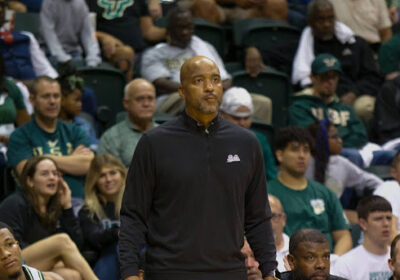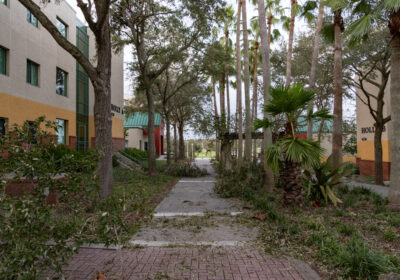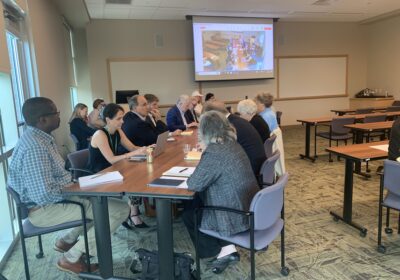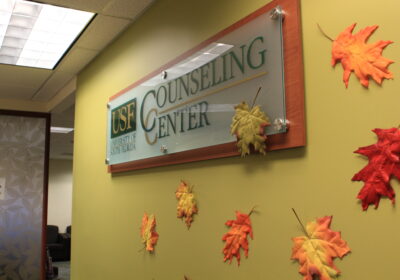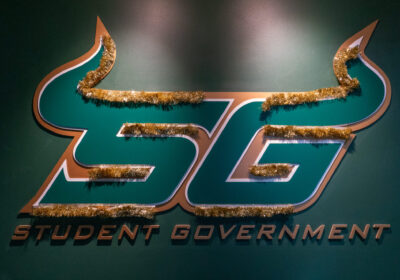First on-campus USsenatorial, gubernatorial debates anticipated
USF students will find out today whether they can attend next week’s senatorial and gubernatorial on-campus debates.
With midterm elections rapidly approaching, Student Government (SG) has teamed up with CNN and the St. Petersburg Times to bring both the Florida U.S. Senate and gubernatorial candidates to USF to face off in two debates.
To attend the debates, USF students entered a ticket lottery, which ended Monday night, through SG’s website. The winners will be announced today via e-mail between 9 a.m. and 11 a.m., SG Chief of Staff Ken Getty said.
Getty said students will be chosen based on a random number generator and any student who attends one debate will not be able to attend the other.
“Over 800 students put in a request for the lottery,” Getty said. “There are 114 student seats for the senate debate and 202 student seats for the gubernatorial debate.”
He said that as the debates draw near, more student tickets may become available if people who receive tickets decline to pick them up by Friday. Getty said a secondary ticket drawing will be conducted an hour before each debate to fill any empty seats.
“Our goal is to have a full house (for each debate), with as few empty seats as possible,” he said.
Getty said Monday he does not yet know where students will go to pick up their tickets, but that the location will be included in the e-mail.
For students who don’t receive a ticket to attend the debates, which will be held in Theatre 1, SG is hosting a debate watch party in the Marshall Student Center Ballroom – a facility that can hold 900 people at capacity, Getty said.
“We’re setting up for 750 people,” he said. “There will be two screens for viewing the debate and a buffet. We want it set up like a convention, a politically active atmosphere.”
Getty said SG plans to provide overflow rooms for both debates in case the ballroom becomes too crowded. Doors will open for the senatorial debate at 8 a.m. on Sunday, and doors for the gubernatorial debate will open at 6 p.m.
According to audience memos for the debates on the SG website, “all electronic devices must be turned off and no cameras will be allowed in the theater.” Use of such devices can lead to “ejection from the theater.” Audience members are also not allowed to wear any campaign attire or pins, and signs will be confiscated.
Those attending the debate can also expect heightened security, Getty said.
He said the debates will be set up “more conversational style” and the goal is to have 10 to 12 questions answered during each debate.
Immediately following the Senate debate, Getty said the candidates will accept pre-chosen questions from three students on stage. This question-answer session will not be televised, but will be available online at CNN.com. The candidates are also expected to attend the watch party after each debate to “meet and greet the USF students,” according to the audience memo.
Getty said the money to fund the debates was built into the SG budget over the summer.
“SG has made available $12,000 to pay for the debates,” he said. “The rest will be covered by the University.”
Michael Hoad, university spokesman, said he estimates the two debates will cost about $20,000 to $30,000 and could open the door for more national debates on campus.
“Being able to host something on a national stage shows that we’re on that level,” Hoad said. “Our role is to be where these events are played. Certainly, there’s opportunity for a presidential debate out of this, if we can show we can host this kind of an event.”
Getty said the partnership among the University, CNN and the Times “has been great,” and has “never felt like one has been contributing more than the other.”
“CNN paid for the set design in Theater I,” he said. “The Times has paid for the tickets, programs, the signage and additional (advertisements) in (their paper).”
Hoad said the University has committed to having 13 expert faculty members attend the debates to answer questions. Among them will be Susan MacManus, political science professor and master of ceremonies for the gubernatorial watch party.
MacManus said the Interstate 4 corridor, the areas surrounding the major state artery, is one of the “key battlegrounds for Florida” – one of the main reasons why it’s important for USF students to attend.
“Seeing a debate in person brings a different perspective about the candidates and the issues,” MacManus said. “The issues the candidates are addressing are very relevant to students. The candidates are starting to realize that students look at a debate with an economic vibe.”
She said students engaged in the debates will be more likely to vote Nov. 2 because of the “civic dialogue” they spark among their peers.
Likewise, Getty said the debates present a “huge opportunity” for students to demonstrate to candidates why their voice is worth listening to.
“The candidates really are coming to USF,” he said. “The follow-through (of all our hard work) will be voting the following Tuesday.”

